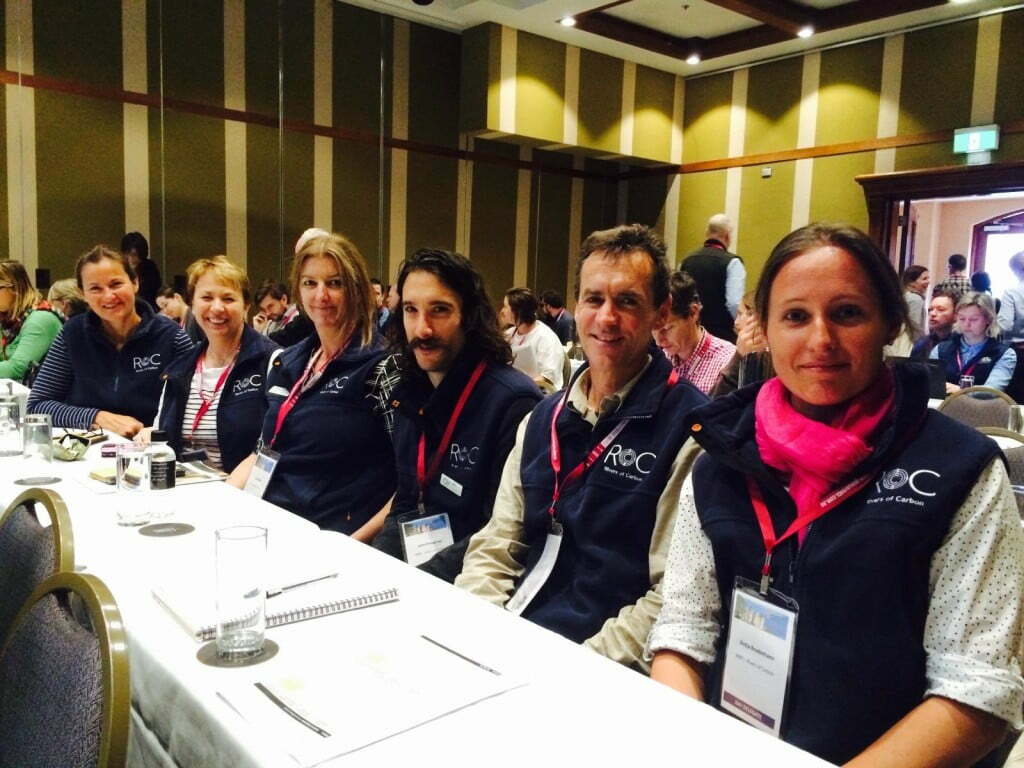We have had three days of talking ecology, geomorphology, hydrology and, of course, sociology at the 8th Australian Stream Management Conference. What we were not expecting was for our international keynote speaker, Professor Ellen Wohl, to talk about some members of her research team being named the ‘carbonophiles’! These ‘carbonophiles’ are doing terrific work investigating how much carbon is in different riverine systems (tropical, boreal and temperate) and, although early days, it seems clear that rivers are very important in sequestering carbon. In some of their work they have shown that although a river may only account for 1% of the landscape area, it can hold up to 23% of the carbon. Once Ellen gets back to the United States of America she will be sending me some more references on this work that I will be happy to share with you…
Ellen also talked about how ‘messy rivers are healthy rivers’, which provides us with further support when talking to landholders about how, although they may feel they are not doing a good job of managing a riparian area when it looks ‘messy’, they are in fact doing the best thing for the environment, water quality and flood mitigation. Messy rivers are also carbon-rich rivers, as the more structurally complex and diverse a river is, the more carbon is retained in the system.
The Rivers of Carbon team also had a leading role at the conference by running a half day workshop. The workshop was well attended, with fifty-five people joining us to learn more about the Rivers of Carbon approach of 1. Managing Rivers, 2. Valuing People and 3. Sharing Knowledge. Of particular ‘note’, was the part of the workshop devoted to having fun. This saw six groups prepare a song relating to river and riparian management. We had some great singing and interpretive dance with ‘money too tight to mention’, ‘hooked on a feeling (fishy lyrics)’, ‘take me to the river’ and ‘from little things big things grow’, all sung with great gusto and enthusiasm. The winning team received an Australian River Restoration Centre mug each, for their interpretive dance about the trials and eventual success of removing willows from a stream.
Over the next few weeks we will be sharing more stories and insights from the conference, so stay in touch with the ARRC Facebook to find out more! If you are interested in learning more about Ellen’s work you can access the proceedings of the workshop here.
Top photo is of the Rivers of Carbon team learning more about carbon from Ellen! Right to left, Mary Bonet, Siwan Lovett, Lori Gould, John Pellegrino, Haydn Burgess and Antia Brademann
